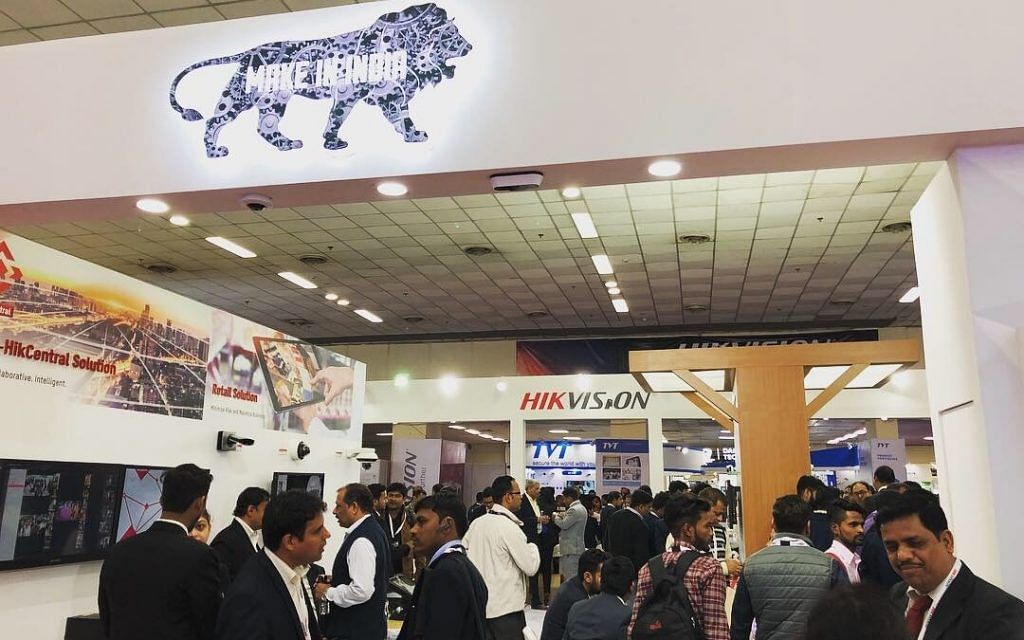Of the 59 Chinese apps banned by the Narendra Modi government, all the buzz has been over TikTok. But there is one Chinese company that dominates India’s CCTV market that never made it into the list. It is named Hikvision, which has cleverly projected itself as part of the prime minister’s ‘Make in India’ initiative.
Just last week, the US Department of Defense named Hikvision, along with 19 other firms, as being “either owned or controlled by the Chinese military”. In fact, the US had already invoked the National Defense Authorization Act and prohibited government agencies from purchasing video surveillance products from Hikvision. The Australian government has expressed similar concerns, and there was even an uproar in the UK.
The wars of tomorrow will be fought as much in our mountains as in the technology sphere. The troughs along the Line of Actual Control (LAC) will shape our conflicts as much as a 5G network. We need to reclaim our physical territory as much as take back our digital spaces. The Modi government’s app ban does not even begin to scratch the surface.
Also read: Banning apps violates WTO rules, will affect employment of Indians: Chinese embassy
Hikvision’s domination
Hikvision is one of the world’s largest video surveillance companies producing both hardware and software tools. It is central to China’s ambitions to become the world’s leading supplier of surveillance systems. Hikvision sells cameras and unmanned aerial vehicles (UAVs) allowing security agencies to monitor railway stations, roads, etc. It is a darling of the Communist Party of China (CPC), having been heralded as a ‘national AI Champion” in 2019.
As per a 2019 report, around 42 per cent of the company is controlled by state enterprises, with China Electronics Technology HIK Group owning nearly 40 per cent. Hikvision controlled 21 per cent of the world’s CCTV market in 2017.
Hikvision exists in India under the name Prama Hikvision Indian Private Limited. As per reports, Hikvision enjoys over 35 per cent market share in India. Its 2019 annual report said it has established a local factory in India — its first overseas production base. It is 58 per cent owned by the parent Chinese company. The Indian partner is Ashish P. Dhakan, who started the collaboration in 2005. It has declared serious investment plans for India.
Hikvision had presented itself as a significant Make in India partner at the 2018 IFSEC Conference — South Asia’s largest security conference — held in New Delhi. As per the 2018 annual report, the company made “major project breakthroughs in India”.
That year, it won a tender from the Delhi government to install 1.5 lakh CCTV cameras in the national capital. It is also listed as a vendor by Bharat Electronics (BEL), which works on highly sensitive and classified defence projects for the government of India. More worryingly, Hikvision has allegedly also supplied solutions to Delhi Metro Rail Corporation (DMRC), Defence Research and Development Organisation (DRDO), and the Special Protection Group (SPG), which is responsible for the security of the prime minister.
Clearly, the security and privacy risks at play here are best left to one’s imagination.
This leaves India with a tricky situation. Admittedly such companies do create secondary economic benefits for India with the local assembly and selling units creating jobs at home. However, there is arguably a bigger price India pays in terms of handing its CCTV grid to a country that is in no mood to offer any concessions to us.
Also read: Shut up and put up — What Chinese companies in India should do as Galwan crisis continues
What India can do
For starters, the Modi government needs to make a clear list or database of all its current installations. Second, it needs to review all installations that would be considered critical or with a national security implication, and then seriously consider replacing them with a local alternative. If that is not feasible, the government needs to wrap such installations with third party (non-Chinese) encryption tools, which would disable any back doors that may exist.
Third, India must prohibit Hikvision from participating in any ongoing or future government tenders. Fourth, the government needs to contemplate increasing local ownership and control of the Indian subsidiary. An innovative solution would be to purchase the 58 per cent stake in Hikvision — either the government could be an investor or it could be enabled by other Indian businesses or funds. Fifth, the Modi government needs to impose a legal obligation for regular audits to check for any security vulnerabilities with serious penalties for non-compliance or negligence.
Lastly, like the Chinese, India too needs to create local champions. In India, this is always the hardest part — less access to capital, poor procurement processes, etc. Most of the technology and subcomponents for Hikvision come from the United States. It is important to remind ourselves that with enough government support, India too can build local champions of technology.
Often those on the government procurement side use price as an excuse to prefer Chinese over Indian vendors. But it’s a lazy argument. Yes, Chinese vendors and their products are often cheaper, but it is because they have worked on these things for decades. Cheap is also not always better and certainly not more secure.
As India considers the next steps, it is important to not penalise and demonise the Indian entrepreneur behind the local subsidiary. They are not to blame.
It shouldn’t take a border stand-off and loss of lives for such issues to be tackled head-on.
Vinayak Dalmia works in the national security area and writes frequently on security affairs & geopolitics. He tweets at @vinayakdalmia. Views are personal.
